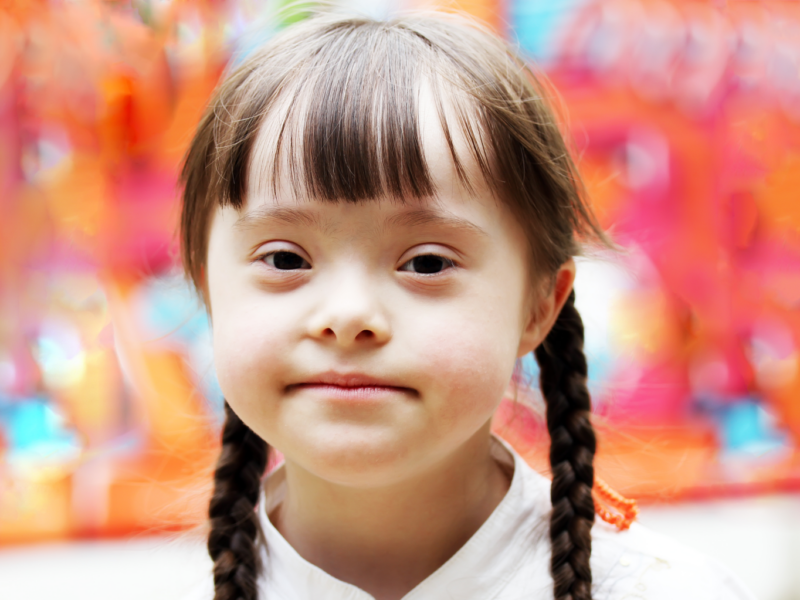Making Exercise Part of Your Treatment Plan: Play Strong for Children With ASD
Making Exercise Part of Your Treatment Plan: Play Strong for Children With ASD https://pediatricsnationwide.org/wp-content/themes/corpus/images/empty/thumbnail.jpg 150 150 Deborah L. Ungerleider, MD, FAAP Deborah L. Ungerleider, MD, FAAP https://pediatricsnationwide.org/wp-content/uploads/2021/10/Deborah-Ungerleider-MD-photo.jpg- February 01, 2022
- Deborah L. Ungerleider, MD, FAAP
How can clinicians use exercise in their treatment of behavioral and mental health disorders? Experts share lessons learned from the Play Strong program.
It is well-known in the medical world that exercise is good for the mind and body, both for children and adults. However, although health care providers may recommend that exercise be incorporated into their patients’ lives, they do not commonly use exercise therapeutically.1
A study published in 2021 used supervised group exercise in conjunction with therapy and/or medication with adolescents who had been diagnosed with depression, referred by their provider to an aerobic exercise program. This study demonstrated improvement in several aspects of the adolescents’ lives. Their mood was improved, as was their self-esteem, emotional control, stress, anger and joy of living. The participants noted that the exercise sessions gave their life structure, which was another positive outcome. The investigators also noted that the support from parents, other family, friends, health professionals and coaches were key to the success of the program, aiding in the adherence and commitment of the participants.2
Referral to an exercise program specifically designed to augment the other areas in a treatment plan is important and can be easy to incorporate. Children, including adolescents, with autism spectrum disorder (ASD) have an increased incidence of obesity compared to children who are neurotypical, for several reasons, including eating issues and barriers to participation in physical activity.3 Play Strong is an exercise-based program developed through collaboration between sports medicine and behavioral health experts at Nationwide Children’s Hospital.
“Play Strong aims to improve the physical activity habits of patients and their families for long-term health benefits,” says Travis Gallagher, AT, operations manager in Sports Medicine at Nationwide Children’s.
Studies have shown that parents of children with ASD report many barriers to participating in physical activity, such as the amount of supervision required, lacking the skills themselves to include their children, the children having few, if any friends, and being excluded by others.4 Parents of children with ASD have also been demonstrated to have more concern about their children’s obesity than parents of children without ASD. This elevated concern may aid in the success of exercise programs because parents’ support is critical.5
“Having a consistent time of the week designated to exercise, as we do in the Play Strong program, really helps families,” says Pankhuree Vandana, MD, psychiatrist and medical director of the Center for Autism Spectrum Disorders at Nationwide Children’s. “Scheduling, and making it part of the treatment plan, allows families to think about exercise in a more ‘medical’ way. It gets them engaged more; it increases the amount of engagement in physical activity more than telling them to do this three days per week at home.”
Having more screen time than their peers who are neurotypical can also be a consequence of, and then contribute to, the issue of obesity and lack of social interaction.4 The Play Strong program also works on this aspect by changing habits, decreasing time on screens (while changing habits re: screens is a part of the Play Strong program, it is a very small part with this patient population… Instead, I would focus on making the activities fun and creating daily habits), thereby increasing physical activity.
Gallagher suggests that the children are actually working harder physically with the games they play in the program, even if they don’t realize it. Their heart rates have been shown to be higher when they are playing these games than if they were told to do other routine physical exercises.
“The games and activities chosen in the Play Strong program make the participants sweat and smile, but the games themselves weren’t designed that way.” says Gallagher.
In addition to helping with managing obesity in patients with ASD, “Play Strong builds confidence and enjoyment of physical activity in both children and their parents,” adds Gallagher. “Parents of children with ASD don’t often get to see their children participate with others in this way.”
The children are also exercising in the same physical space used for neurotypical kids for rehabilitation, including college and high school athletes. Both Gallagher and Dr. Vandana emphasized that this is key for both the parents and the children, as it is more inclusive, whereas they frequently feel left out in other situations.
“In sports medicine, we are used to working with athletes. Expanding to working with others, such as patients with ASD, makes us better clinicians,” says Gallagher. “We set an example of how to change and build programs to be more inclusive and make individuals happy and active while helping them to build better habits. It just takes collaboration and stepping out of your comfort zone.”
Gallagher and Dr. Vandana, with colleagues, Douglas Russell, MD, University of Washington, Francisco Navarro, MD, Mind Health Institute, and Richard Dopp, MD, University of Michigan, presented a workshop on this topic at the American Academy of Child & Adolescent Psychiatry 2021 annual meeting. Specifically, Gallagher and Dr. Vandana discussed the impact that guided exercise programs can have on obesity, social engagement and motor skill difficulties in children and adolescents with ASD.1
References
- Russell D, Navarro F, Dopp R, Vandana P, Gallagher T. Walking the walk: practical tips to make exercise part of your treatment plan. Journal of the American Academy of Child and Adolescent Psychiatry. 2021 Oct;60(suppl 10):S317.
- Serrander M, Bremander A, Jarbin H, Larsson I. Joy of living through exercise – a qualitative study of clinically referred adolescents’ experiences of moderate to vigorous exercise as treatment for depression. Nordic Journal of Psychiatry. 2021 Apr;75(8):574-581.
- Curtin C, Hyman SL, Boas DD, et al. Weight management in primary care for children with autism: expert recommendations. Pediatrics. 2020 Apr;145(suppl 1):S126-S139.
- Must A, Phillips S, Curtin C, Bandini LG. Barriers to physical activity in children with autism spectrum disorders: relationship to physical activity and screen time. Journal of Physical Activity & Health. 2015 Apr;12(4):529-534.
- Tybor DJ, Eliasziw M, Kral TVE, et al. Parental concern regarding obesity in children with autism spectrum disorder in the United States: National Survey of Children’s Health 2016. Disability and Health Journal. 2019 Jan;12(1):126-130.
About the author
Deborah Ungerleider, MD, FAAP, earned her medical degree from the University of Medicine and Dentistry of New Jersey (UMDNJ)/Rutgers Medical School in Piscataway, NJ in 1985, following earning a BA in biology at Barnard College/Columbia University. She went on to complete a pediatric residency and chief residency at New York University Medical Center/Bellevue Hospital. She is an experienced pediatrician with more than 30 years of working in private pediatric offices and being on staff at several community hospitals. She is board-certified in Pediatrics and is a fellow of the American Academy of Pediatrics.
Her medical writing and editing experience has included writing educational articles for her patients, in addition to editing medical journal articles for various specialty journals. Dr. Ungerleider now works as a freelance medical writer and editor, using her medical expertise, as well as her organizational and writing skills to assist clients with medical communication projects directed at both clinicians and lay audiences.
-
Deborah L. Ungerleider, MD, FAAPhttps://pediatricsnationwide.org/author/deborah-l-ungerleider-md-faap/October 21, 2021
-
Deborah L. Ungerleider, MD, FAAPhttps://pediatricsnationwide.org/author/deborah-l-ungerleider-md-faap/
-
Deborah L. Ungerleider, MD, FAAPhttps://pediatricsnationwide.org/author/deborah-l-ungerleider-md-faap/
- Posted In:
- Clinical Updates
- In Brief









